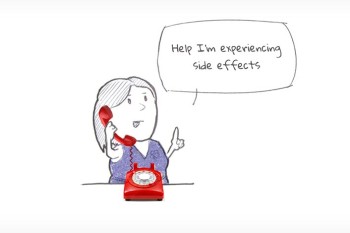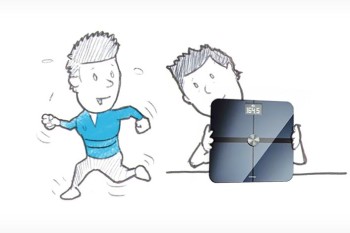The mild and beneficial stress of fasting tends to make our brains more alert (presumably so that our ancient ancestors would be alert to any food possibilities!) but this can sometimes spill over into when we go to bed, making us more wakeful than usual.
Like most of the ‘side-effects’ of fasting, the insomnia of fast days is worse with the first few fasts and improves as we get used to fasting. For a few, however, insomnia remains a problem.
As we age, we tend not to sleep so deeply as when we were young, and for women going through the menopause, sleep can be even more disturbed. Both ageing and the menopause are also often accompanied by weight gain, so unfortunately, many people looking to lose weight through fasting are also struggling with insomnia. In fact, poor sleep has been well established as being connected with weight gain.
If you are struggling with sleep problems, whether on fast days or on non-fast days as well here are some tips that may help.
Save some calories for a snack before bed
Ideally we should avoid eating just before bedtime, but a low-carbohydrate, high protein/high fat snack before bed can help with sleep. This might be a milky drink or a cube of cheese. Try saving a few calories from your fast-day allowance for a late snack, many people on the FastDay forum have found that this can help sleep on a fast day.
Ensure you have good sleep hygiene
Sleep hygiene is all about making sure we prepare properly for sleep and includes such things as:1
-
Don’t do screen-based activities close to bedtime (or in bed). This not only means turning off the television but also avoiding using your smart phone, tablet or similar devices. The light from their screens is blue-ish and blue light interferes with production of the sleep hormone, melatonin, which should rise in the evening in response to the fading daylight.
-
Keep the bedroom dark and cool.
-
Do not use the bedroom for work, hobbies or anything that involves being mentally active.
-
Do not exercise close to bedtime.
-
Do not sleep late in the morning to make up for lost sleep at night. Set a period of time when you ‘should’ be sleeping (say 11pm to 7am). Whether or not you manage to sleep well, get up at 7 am and don’t go to bed before 11 pm. This helps to keep your body clock and sleep hormones working properly.
Get outside especially during the morning hours
Low light levels from being indoors interferes with the natural rhythm of hormones that control sleep. Even if you think you are in a brightly lit room, it will never be close to the amount of light outdoors. As we age, this problem worsens due to changes in the structure of our eyes. Spending time outdoors, especially in the morning, can help with sleep.1,2
Secondly, being outdoors enables our bodies to make vitamin D. Many people in the higher latitudes, especially those who are overweight, are deficient in vitamin D. Even in the summer, our efforts to avoid sunburn – covering up and using sunscreens – prevent our bodies from manufacturing enough vitamin D. Vitamin D is not only important in bone health but is also involved in a myriad of other bodily processes, one of which is getting a good night’s sleep.
Lastly, studies show that people who spend time out of doors in the early morning tend to weigh less.3
Supplements
Many herbal supplements are marketed as being beneficial for improving sleep. Unfortunately, there is very little scientific evidence to back up their claims. Worse, many herbal supplements can have dangerous side-effects, in particular Jamaican dogwood, kava kava, alcohol, and L-tryptophan.4
-
Valerian root extract has shown some limited effectiveness in scientific studies.4
- Magnesium plays a key role in sleep and magnesium deficiency is common. Taking a supplement that provides 500mg of elemental magnesium has been shown to improve sleep in elderly people.5,6 The tablets need to be taken shortly before bedtime and the type of magnesium tablets is important. Some forms of magnesium are better absorbed than others with the poorly absorbed forms, such as magnesium oxide or magnesium hydroxide, tend to have a laxative effect while the better absorbed forms, such as magnesium citrate are more effective for insomnia.














